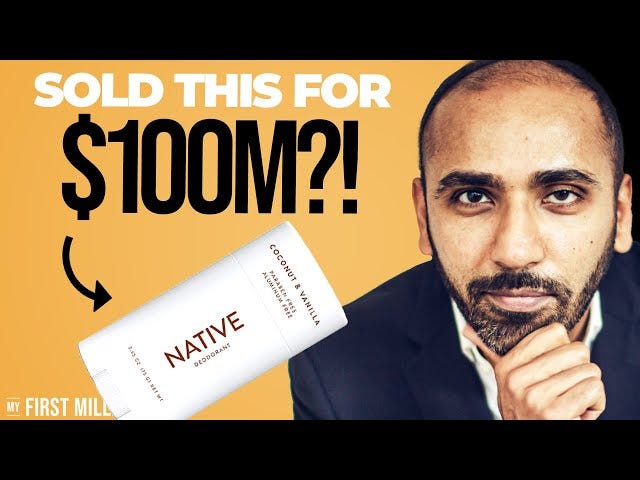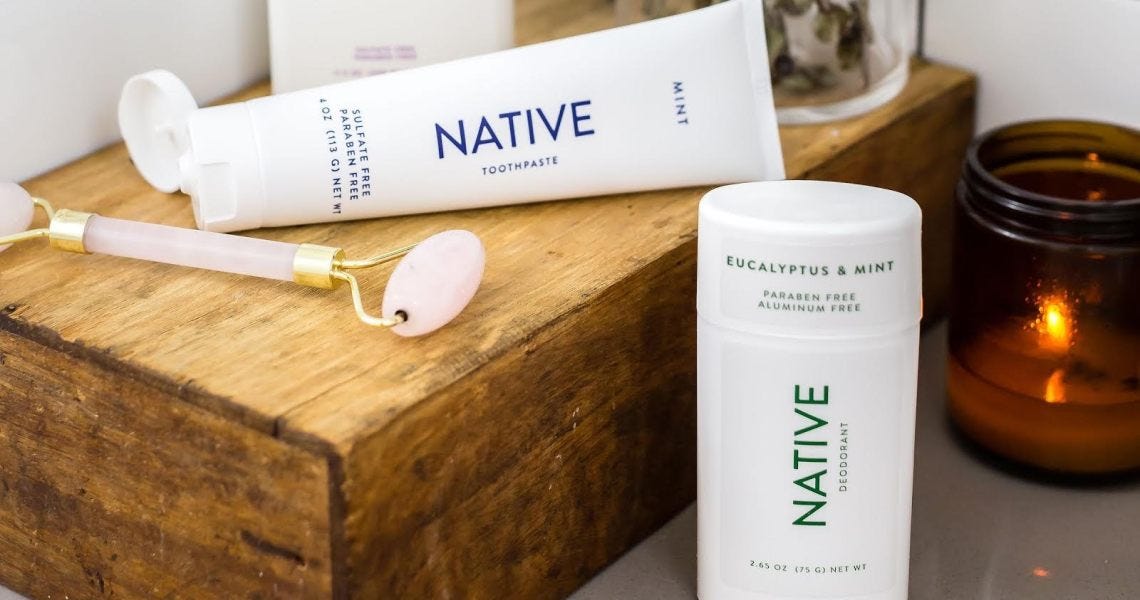How this Serial Entrepreneur built a Natural Deodorant Brand & sold it for $100 million
With natural ingredients like coconut oil, baking soda, and shea butter $100M was made. -- JUST START!
Inspiring Startup Story: Native Deodorant
Company: Native
Founded: 2015
Founder: Moiz Ali
Headquarters: San Francisco, California, USA
From Humble Beginnings to a Global Natural Deodorant Brand
Native, a company known for its aluminum-free deodorants and simple, effective personal care products, began as an ambitious experiment in a highly competitive industry. In 2015, Moiz Ali, a serial entrepreneur, started Native with a straightforward goal: to create a better deodorant made from natural ingredients, free from harmful chemicals.
Ali, who had no experience in the personal care industry, was driven by a simple idea: consumers deserved a natural deodorant that worked. At the time, many natural products in the market were either ineffective or unpleasant to use. He set out to bridge this gap, creating a product that was not only safe but also delivered on performance.
How It All Started
Moiz Ali bootstrapped Native from the ground up. The company operated with minimal resources, leveraging a direct-to-consumer (DTC) model to sell deodorants online. Ali prioritized customer feedback from the beginning, refining the product based on user reviews and ensuring it met consumer needs.
Native’s initial offerings were made with natural ingredients like coconut oil, baking soda, and shea butter—simple yet effective components that appealed to health-conscious buyers. The brand emphasized transparency, listing all ingredients and educating customers on the benefits of going natural.
In the early days, Native did not spend heavily on advertising. Instead, it grew organically through word of mouth and strategic use of social media platforms. The company quickly developed a loyal following by offering excellent customer service and free shipping.
Rapid Growth and Acquisition
What set Native apart was its ability to scale quickly while maintaining quality. Ali’s focus on direct customer communication and iterative product development helped the company gain a competitive edge in the natural personal care space.
In 2017, just two years after launching, Native caught the attention of Procter & Gamble (P&G), one of the world’s largest consumer goods companies. P&G acquired Native for $100 million, marking a significant milestone for the brand. Despite the acquisition, Native maintained its commitment to simplicity, transparency, and quality, continuing to operate with a startup mindset.
What Makes Native Special?
Native has expanded its product line to include toothpaste, body wash, and sunscreen, staying true to its philosophy of clean, natural ingredients. The brand also introduced seasonal and limited-edition scents, keeping its offerings fresh and exciting.
Native’s ability to resonate with modern consumers lies in its authenticity and focus on sustainability. The brand has taken steps toward eco-friendly practices, such as introducing plastic-free packaging for its deodorants.
What We Can Learn from Native’s Success
Focus on the Customer: Native’s success was built on listening to customers and continuously improving the product based on feedback.
Transparency Builds Trust: Native built a loyal customer base by openly sharing ingredient lists and the benefits of natural alternatives.
Leverage DTC Models: The direct-to-consumer approach allowed Native to build a closer relationship with buyers and retain higher profit margins.
Small Can Win Big: Native’s $100 million acquisition by P&G is proof that even small, bootstrapped startups can thrive and attract big players in the market.
Stay Authentic: Despite its acquisition, Native has remained true to its core values, a move that has kept customers loyal to the brand.
Native’s story is an inspiring example of how passion, innovation, and customer-centricity can turn a small idea into a global success. It proves that even in crowded markets, there’s always room for brands that focus on solving real problems while staying true to their mission.






